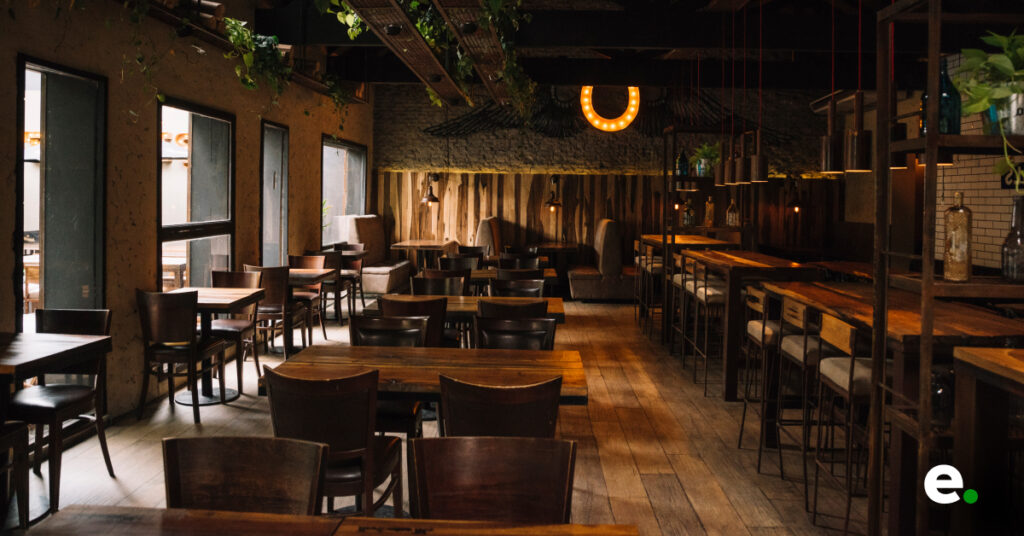Success is initiated at the very beginning of one’s business when you make a plan for it. Your objective is not just for the development strategy but for the viable conceptualization of your thoughts to present to your colleagues and associates. A perfect business plan is the first wise step that can significantly affect not just the success of your business but its scalability and growth too, as it will decide the footprints for investors to get into your business.
Though every business requires proper thought before setting up, the restaurant business is very sensitive to pre-planning. When new restaurants and eat-outs are pouring into the eat streets, adding new wheat to them demands uniqueness and efficiency to attract customers.
Browsing through various restaurant business plan examples allows you to anticipate and sort all the potential pain points and edges that can be decisive in making it a successful venture for you. Every element of your business needs to be flawless and a business plan enables you to achieve what you imagined.
If you are planning to enter the restaurant business then here is a complete guide on how to write a restaurant business plan:
Understand the importance of a business plan
You cannot prepare a good plan until and unless you feel its importance. Many times restaurant owners skip the formal development of a business plan because it is a mentally exhausting and time-consuming task. But, failing to develop a plan is a big reason that many restaurants taste failure in not much time.
Your business plan will be a road map for your operations and financial outreaches, to ensure that your venture is in harmony with the market trends and is airtight for the budget and expectations. Your business plan is vital to target a good profit from your restaurant and take up sustainable steps for the long run in the ever-evolving market of the food and hospitality industry.
Hold on to the best business plan writing strategy
Writing a poorly structured and less thoughtful restaurant business plan is as good as having a no plan. If you write a business plan then you must focus on all the parameters that can potentially hit the ratings and growth of the restaurant in the long run. While developing your restaurant's business plan, pay attention to the theme, style, location, etc.

Here are some key elements that are must-have in the list of perfect restaurant business plan examples for a successful and reputed restaurant:
1. Executive summary:
Starting your restaurant business plan with an executive summary gives it a robust and crisp start. It provides a wholesome idea to the plan and makes it easy to understand your thought process for investors and associates. An executive summary includes your mission statement, proposed theme, restaurant design, financial limits of expenses, and expected turnovers. In short, having an executive summary allows a quick understanding of your complete plan and expectations from the process.
2. Company description:
As the name goes, in this section, describe your restaurant and its values briefly. It must describe your restaurant from the customer's point of view. Add all the essential details like contact numbers, location, online address, etc. in this section. Also, including legal standing and taking off the restaurant as a compliant venture is always trusted by investors. Polish the plan with long and short-term goals to give a thorough idea of what you are expecting from your venture and how to achieve it.
3. Market analysis:
The strongest pillar for a robust and productive business plan is proper analysis of the market and peers. Always analyze your target audience and key factors driving them to your restaurant, ditching all the competitors. Without knowing the ins and outs of the industry, you cannot expect to channel a successful stride for your restaurant, as this industry is very much based on trends and uniqueness.
Analyzing the market also helps you know what to refrain from while opening a restaurant, allowing you to learn from your competitors' mistakes.
4. Menu:
Do we need to say that your restaurant's menu is the most important factor in making your business successful? Include your menu structure and elements in your business plan so that you can work according to its needs and save not just time but resources too. How? If you are opting for a Thai menu then you have to work on interiors, cutlery, chefs, etc. as per the cuisine. So, setting up the menu first prevents a mess that can occur due to unthoughtful hires and purchases.
Your menu in the business plan must include not just the dishes but also the prices, as pre-determining the prices enables you to set up the profit and expenses targets easily.
5. Employees:
After the menu comes to the staff as it is your staff that brings your restaurant to liveliness. Polite and attentive staff adds as much to your restaurant's reputation as the delicious dishes that you serve. In this section of your restaurant business plan, introduce your full management team that is already hired and explain your expectation from the one yet to be hired. Showcase the experience and achievements of your already appointed staff members in the plan to cast a strong impression on the investors or associates.
This section of your business plan must also include the ownership percentage of your venture. Keep updating it with new developments to maintain the authenticity of your plan.
6. Restaurant design:
Including the design, portion presents a good restaurant business plan example. Your business plan must give a proper idea of the design of not just the restaurant's infrastructure but also the interiors, sitting arrangement, kitchen, washrooms, parking, etc. It helps to employ a stiff and solid budget for each restaurant section, making it less financially draining.

Defining all the expenses on designs in the plan is beneficial to keep a margin for changes and add-on service charges that might hamper your budget in executing the plan. Also, mention the suppliers of various commodities, contractors, builders, etc., in the plan.
7. Location:
Your restaurant business plan must include the exact location where you are planning to set it up. The location you choose should be according to your target audience and must be reachable through maximum conveyance. From demographics to environment and neighborhood, explain everything in the plan to give your investors a fair idea of the potential benefits and drawbacks of the location.
8. Market overview:
A market overview is allied to a market study of the trends and advancements in the industry. It must have all the small and big pain points and concerns that can impact the restaurant's growth and a complete strategy on how you will dilute the impacts with proper actions. It must also have a financial and demographic analysis to provide a complete image of the plan's potential flaws and benefits.
9. Marketing:
For a good start and sustainable restaurant growth, one cannot miss marketing. Your business plan must include all the modes and channels of marketing and expenses targeted on it. Describe the budget percentage for each marketing strategy like digital, print media, social media, etc. in the plan and keep track of customer accessibility from each channel.
Incase you are wondering how to promote you brand new restaurant check out Top 10 bulletproof tips to market a new restaurant business.
10. External help:
Modern restaurants are digitally advanced and evolving as per the need of the customers. To maintain your restaurant's sustainability, you will have to collaborate with other companies and agencies like a PR management agency, digital marketing company, commodity suppliers, etc. Mention all the external help in the restaurant business plan to give a proper idea to the reader of the plan about who can be the extended collaborators in the restaurant.
11. Financial analysis:
Your financial section is very much important for your restaurant's business plan. Your wholesome and sectional budget must be crisp and realistic for hassle-free operations and no loose threads. A trained and experienced accountant can help you manage your financials.

You must be disciplined yet flexible in your expenses to save maximum without compromising on the quality. Mention the strategies and steps you would take for the same in your plan to develop confidence. Also, you must include a cash flow strategy and expected revenue for your business plan.
You can have various reasons to write a restaurant business plan, but the bottom line is always that you must be very efficient and realistic. With increasing profit, knowledge, and resources, update your business plan effectively to leverage maximum productivity from it. Once you develop it, don’t stick to it strictly and keep a window to evolve it according to the circumstances and trends.





